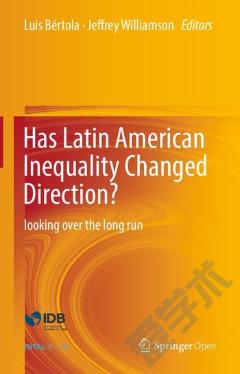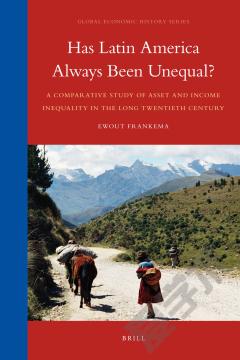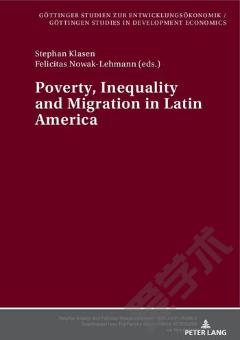Has Latin American Inequality Changed Direction? —— Looking Over The Long Run
This book brings together a range of ideas and theories to arrive at a deeper understanding of inequality in latin america and its complex realities. To so, it addresses questions such as: what are the origins of inequality in latin america? how can we create societies that are more equal in terms of income distribution, gender equality and opportunities? how can we remedy the social divide that is making latin america one of the most unequal regions on earth? what are the roles played by market forces, institutions and ideology in terms of inequality? in this book, a group of global experts gathered by the institute for the integration of latin america and the caribbean (INTAL), part of the inter-american development bank (IDB), show readers how various types of inequality, such as economical, educational, racial and gender inequality have been practiced in countries like brazil, bolivia, chile, mexico and many others through the centuries. Presenting new ideas, new evidence, and new methods, the book subsequently analyzes how to move forward with second-generation reforms that lay the foundations for more egalitarian societies.
{{comment.content}}








 京公网安备 11010802027623号
京公网安备 11010802027623号